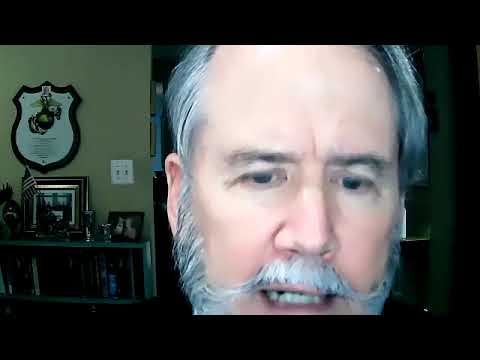FEBRUARY 17—Last week The Scrum began video-recording a new series of question-and-answer exchanges with leading international relations experts, thinkers, and practitioners. Our first guest, I am pleased to say, was Ambassador John Evans.
John’s learned and calm perspective on Russia, the war in the Caucasus, and U.S. foreign policy altogether is sorely needed, especially as the fissure between Russia and the West grows ever larger. The events of the past month, including the arrest of Alexei Navalny, the associated diplomatic imbroglio involving Poland, Germany, Sweden, and Russia, and the U.S. push for sanctions over the Nord Stream 2 pipeline seem to indicate that we are approaching an even more perilous phase in East–West relations.
Given the current environment, it made eminent sense to call upon Ambassador Evans, whose distinguished career in the foreign service spanned four decades. John joined the foreign service in the early 1970s, serving in posts as far afield as Tehran, Prague, and Moscow. In the final years of the Cold War, he served at the U.S. Mission to NATO and as deputy director of the Soviet desk at State. In the 1990s, John returned to Russia, where he served as consul-general in St. Petersburg from 1994–97, from which perch he encountered an up-and-coming young intelligence agent-turned-politico who went on to grander things. In 2004, after another tour in the State Department’s Office of Russian Affairs, he served as ambassador to Armenia.
Evans has written what is in my opinion one of the most illuminating articles of the past decade on Vladimir Putin, which appeared in the National Interest in September 2019. In it, John challenges the widely held view of the Russian president as a malevolent, far-right, anti–Western dictator seeking to undermine democracy and sow chaos abroad. No: According to Evans, at bottom, Putin is what “Russians call a gosudarstvennik, a man of the state.” In his interactions with Putin, Evans observed that he was “1) was not anti–American (although he felt more comfortable with Germans); 2) was not a communist (at least by that time) or hostile to private business; 3) was not anti–Semitic; 4) and was not intolerant of gay people.”
Thoughtfully and sympathetically, John began our exchange with a kind and fond remembrance of the late Stephen F. Cohen, the celebrated Russianist whose loss remains acutely felt at The Scrum. We went on to discuss the recent fighting between Armenia and Azerbaijan over the disputed territory of Nagorno–Karabakh. While Russia negotiated a ceasefire and deployed peacekeepers, late last year, by many media accounts the truce is exceedingly fragile. John explained in detail some of the relevant history between Armenia and Azerbaijan and explained the role Turkey played in this most recent round of fighting.
We concluded with a discussion of Vladimir Putin. John paints a very different picture of Putin from the sinister anti–Western strongman who desires nothing more than to undermine democracy in the West.
—J. W. C.




Thank you James and specially Ambassador John Evans with whom I had the privilege to meet with my US students at the old US embassy in Yerevan. Your presentation on the conflict in Nakorno Karabakh (Artsakh for Armenians) was very helpful specially for the American listeners to understand how important is the issue of Artsakh for Armenians. I hope the new administration will restore the policy of one of the greatest presidents of USA President W. Wilson.
Thank you for this interview -- a thoughtful and very refreshing.
One question of interest is the 70-year long constant in US foreign policy -- uncompromising and endless regime change wars and economic sanctions (a form of war) against socialist countries. Why is that - pure ideology, or oil control, inertia? Why not a politics of coexistence with socialist countries?
“Venezuela is fundamental threat to USA” -- declared Obama formally initiating regime change.
Is what he really meant is “Socialism is a threat to capitalism”… hence imperial War-party endless wars -- against Bolivia, Nicaragua, Venezuela, Syria, Cuba, Libya, China….. Should we perhaps "defund US military terrorism" as an enlightened policy?